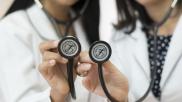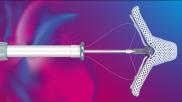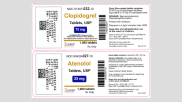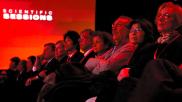| | News You Need to Know Today |  | | | | | Wow, is it October already? It must be, because it's suddenly chilly in the mornings, and the neighbors just put a massive Michael Myers statue in their front yard. September was an exciting month, one that included a lot of late-breaking research, historic procedures and, yes, some attention-grabbing recalls. I love that our most popular stories of the month include such a wide variety of topics. It shows that this is an unpredictable specialty where anything can happen. I do want to thank all of the physicians, nurses, trainees, executives and patients who read our daily newsletters. We wouldn't be able to do what we love to do if it was not for all of you. Also, that Michael Myers statue just started walking this way ... I better sign off and lock the doors! Thanks for reading. - Michael Walter | Editor, Cardiovascular Business | ![]() |
|
| The Month in Review | Erin D. Michos, MD, co-editor in chief of the American Journal of Preventive Cardiology, discusses gender differences in heart disease presentations. Erin D. Michos, MD, co-editor in chief of the American Journal of Preventive Cardiology, discusses gender differences in heart disease presentations. | | |
| These findings, researchers wrote, suggest that artificial sweeteners "should not be considered a healthy and safe alternative to sugar." These findings, researchers wrote, suggest that artificial sweeteners "should not be considered a healthy and safe alternative to sugar." | | |
| According to a new analysis from MedAxiom, an American College of Cardiology company, cardiologist compensation has nearly returned to where it was before the COVID-19 pandemic. The detailed report also examined new patient visits, cardiac imaging utilization and much more. According to a new analysis from MedAxiom, an American College of Cardiology company, cardiologist compensation has nearly returned to where it was before the COVID-19 pandemic. The detailed report also examined new patient visits, cardiac imaging utilization and much more. | | |
| “This procedure potentially solves the problem of a growing valve,” the lead surgeon said. “If we can eliminate the need for multiple open-heart surgeries every time a child outgrows an old valve, we could be extending the life of that child by potentially decades or more.” “This procedure potentially solves the problem of a growing valve,” the lead surgeon said. “If we can eliminate the need for multiple open-heart surgeries every time a child outgrows an old valve, we could be extending the life of that child by potentially decades or more.” | | |
| When these malfunctions occur, the FDA explained, it leads to an increased risk of additional interventions. When these malfunctions occur, the FDA explained, it leads to an increased risk of additional interventions. | | |
| Patients face a risk of adverse events if they mistakenly take the wrong medication, according to a new warning from the FDA. Patients face a risk of adverse events if they mistakenly take the wrong medication, according to a new warning from the FDA. | | |
| The biggest news from the American Society of Nuclear Cardiology (ASNC) 2022 meeting was positive late-breaking data on the phase 3 Aurora trial for the flurpiridaz (F-18) PET radiotracer agent. The biggest news from the American Society of Nuclear Cardiology (ASNC) 2022 meeting was positive late-breaking data on the phase 3 Aurora trial for the flurpiridaz (F-18) PET radiotracer agent. | | |
| The complexity of the mitral valve has slowed development of new transcatheter technologies, and it now seems much more likely that transcatheter devices for tricuspid valve will push ahead to gain FDA clearances. The complexity of the mitral valve has slowed development of new transcatheter technologies, and it now seems much more likely that transcatheter devices for tricuspid valve will push ahead to gain FDA clearances. | | |
| “The United States is essentially inventing the technology and then the rest of the world is figuring out how to use it better,” he said. “The United States is essentially inventing the technology and then the rest of the world is figuring out how to use it better,” he said. | | |
| The American Heart Association 2022 Scientific Sessions included 35 late-breaking studies and 39 featured science sessions presented at the meeting in Chicago, Nov. 5-7. Here is the list of all these studies with links to more information on the data. The American Heart Association 2022 Scientific Sessions included 35 late-breaking studies and 39 featured science sessions presented at the meeting in Chicago, Nov. 5-7. Here is the list of all these studies with links to more information on the data. | | |
| |
|
| ![]() | |
|















